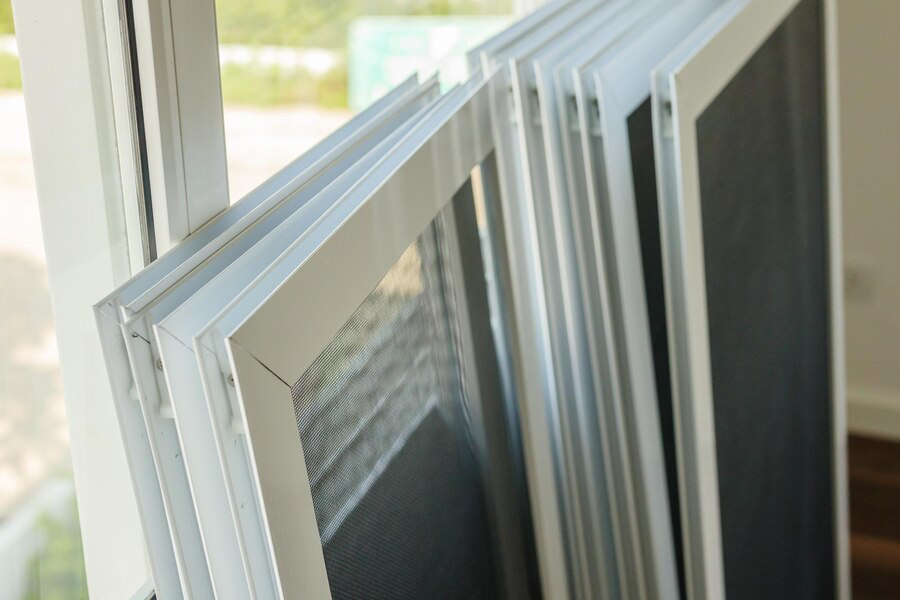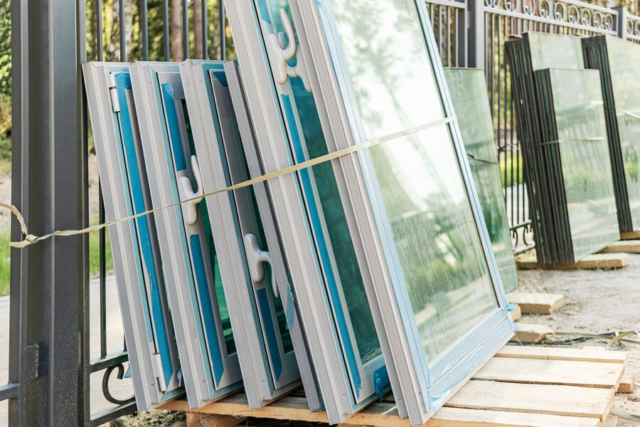
Comparing Different Types of Window Replacement Materials
When it comes to renovating your home or office, replacing windows is often a significant decision. Choosing the right replacement materials can impact energy efficiency, aesthetics, and long-term maintenance costs. In this comprehensive guide, we delve into the world of window replacement materials, comparing their pros and cons to help you make an informed choice. From classic wood to modern vinyl and energy-efficient fiberglass, each material offers unique benefits and considerations. We’ll explore the durability of materials, their resistance to elements like moisture and sunlight, as well as their insulating properties. Whether you prioritize traditional charm, eco-friendliness, or low maintenance, understanding the characteristics of different window materials will empower you to select the perfect option for your space. Join us on this journey through the diverse landscape of window replacement materials, and discover which one aligns best with your needs and preferences.
The Ultimate Guide to Window Replacement: Exploring Your Material Options
Are you considering upgrading your windows? Whether you’re renovating your home or simply looking to enhance its energy efficiency and aesthetic appeal, choosing the right window replacement material is crucial. With a plethora of options available, from traditional wood to modern fiberglass, navigating the world of window materials can be overwhelming. Fear not! In this ultimate guide, we’ll delve into the various window replacement materials, comparing their features, benefits, and drawbacks. By the end, you’ll be equipped with the knowledge to make an informed decision that suits your home’s unique needs and your personal preferences.
Vinyl Windows: The Affordable All-Rounder
Vinyl windows have become a popular choice for homeowners seeking affordability without compromising on quality. Known for their low cost, low maintenance requirements, and decent energy efficiency, vinyl windows offer a compelling option for those on a budget. In this section, we’ll explore the benefits of vinyl windows, such as their durability, insulation properties, and versatility in design options. We’ll also address some common misconceptions and limitations associated with this material, helping you determine if vinyl windows are the right choice for your home.
Wood Windows: Timeless Elegance and Warmth
For those seeking classic charm and natural beauty, wood windows remain a top contender. In this segment, we’ll delve into the timeless appeal of wood windows, from their aesthetic versatility to their excellent insulation properties. However, we’ll also discuss the drawbacks of wood windows, including their susceptibility to moisture damage, rot, and termite infestations. By weighing the pros and cons, you’ll gain insight into whether wood windows align with your preferences and maintenance capabilities.
Fiberglass Windows: Strength, Durability, and Efficiency
Fiberglass windows have emerged as a premium option for homeowners prioritizing strength, durability, and energy efficiency. In this section, we’ll explore the superior features of fiberglass windows, such as their exceptional durability, thermal performance, and minimal maintenance requirements. Additionally, we’ll address the investment aspect of fiberglass windows, considering their higher upfront cost but long-term benefits. By understanding the unique advantages of fiberglass, you’ll be able to assess whether it’s worth the investment for your home.

Aluminum Windows: Modernity Meets Sustainability
Sleek, stylish, and sustainable, aluminum windows offer a contemporary aesthetic with eco-friendly benefits. In this segment, we’ll delve into the advantages of aluminum windows, including their sleek design, strength, and recyclability. However, we’ll also examine some challenges associated with aluminum, such as its poor insulation properties and susceptibility to corrosion. By weighing the pros and cons, you’ll gain insight into whether aluminum windows align with your home’s architectural style and environmental values.
Composite Windows: The Best of Both Worlds
Combining the strengths of different materials, composite windows offer a compelling alternative for homeowners seeking durability and versatility. In this section, we’ll explore the benefits of composite windows, including their resistance to rot, warping, and thermal expansion. We’ll also discuss the various composite materials used in window construction, such as wood-clad, fiberglass-clad, and vinyl-clad composites. By understanding the unique features of composite windows, you’ll be better equipped to assess whether they meet your home’s specific requirements.
Vinyl vs. Wood: Which Window Replacement Material Reigns Supreme
When it comes to window replacement, two materials stand out as popular choices: vinyl and wood. Both offer unique advantages and appeal to different homeowners for various reasons. In this comprehensive comparison, we’ll delve into the characteristics, benefits, and drawbacks of vinyl and wood windows, helping you determine which material reigns supreme for your window replacement project.
Durability: The Battle of Longevity
Vinyl windows are renowned for their durability, resisting rot, corrosion, and insect damage. They’re virtually maintenance-free and can withstand harsh weather conditions without deteriorating. On the other hand, wood windows, while inherently sturdy, require regular maintenance to prevent rot, warping, and termite infestations. However, with proper care and upkeep, wood windows can last for decades. By weighing the maintenance requirements against longevity, homeowners can decide which material best suits their lifestyle and preferences.
Energy Efficiency: Keeping the Elements at Bay
Both vinyl and wood windows offer decent energy efficiency, helping to keep your home comfortable year-round and reduce energy costs. Vinyl windows typically feature multi-chambered frames and insulated glass, providing effective thermal performance. Wood windows, while inherently insulating, may require additional weather-stripping and sealing to minimize air leakage. However, the natural insulating properties of wood can contribute to energy savings over time. By considering factors like U-factor, Solar Heat Gain Coefficient (SHGC), and Energy Star ratings, homeowners can determine which material offers the best energy efficiency for their climate and budget.
Aesthetic Appeal: Beauty in Design
One of the primary distinctions between vinyl and wood windows lies in their aesthetic appeal. Vinyl windows are available in a wide range of colors and finishes, offering versatility in design options. They’re ideal for homeowners seeking a modern, low-maintenance aesthetic. Wood windows, on the other hand, exude timeless elegance and warmth, enhancing the character of both interior and exterior spaces. With their natural grain patterns and ability to be painted or stained, wood windows offer unparalleled aesthetic versatility. By considering architectural style, personal taste, and desired curb appeal, homeowners can choose the window material that best compliments their home’s aesthetic vision.
Cost Considerations: Budget vs. Investment
Cost is often a significant factor in the decision-making process for window replacement. Vinyl windows typically offer a more budget-friendly option, with lower upfront costs and minimal maintenance expenses over time. Wood windows, while initially more expensive, may require ongoing maintenance and repairs, contributing to higher long-term costs. However, for homeowners who prioritize the timeless beauty and authenticity of wood, the investment may be well worth it. By evaluating budget constraints and long-term value, homeowners can determine which material aligns with their financial goals and preferences.
Environmental Impact: Sustainability Matters
Sustainability is increasingly becoming a priority for homeowners seeking eco-friendly building materials. Vinyl windows, while durable and energy-efficient, raise concerns about their environmental impact during production and disposal. Wood windows, sourced from responsibly managed forests or reclaimed wood, offer a more sustainable option with lower carbon emissions. However, it’s essential to consider the environmental implications of wood harvesting and processing. By researching manufacturers’ sustainability practices and certifications, homeowners can make an environmentally conscious choice that aligns with their values.
Fiberglass Windows: The Hidden Gem of Window Replacement Materials
Uncover the secret to superior window replacement with fiberglass windows. Often overlooked, fiberglass offers a winning combination of strength, durability, and energy efficiency. In this brief guide, we’ll explore why fiberglass windows are the hidden gem you’ve been searching for.
- Exceptional Durability: Fiberglass windows are incredibly durable, resisting warping, rot, and corrosion. They’re designed to withstand extreme weather conditions, ensuring long-lasting performance and minimal maintenance requirements.
- Energy Efficiency Champion: With excellent thermal performance and insulation properties, fiberglass windows help reduce energy consumption and lower utility bills. Their superior energy efficiency makes them an environmentally friendly choice for eco-conscious homeowners.
- Low Maintenance: Unlike wood windows that require regular staining or painting, fiberglass windows are virtually maintenance-free. A simple cleaning with soap and water is all that’s needed to keep them looking like new for years to come.
- Versatile Design Options: Fiberglass windows come in a variety of styles, colors, and finishes to complement any architectural aesthetic. Whether you prefer a modern, sleek look or a traditional, classic design, there’s a fiberglass window to suit your taste.
Conclusion
Choosing the right window replacement material is crucial for enhancing the aesthetics, energy efficiency, and longevity of your home. Each option – vinyl, wood, fiberglass, and aluminum – comes with its own set of advantages and considerations. Vinyl offers affordability and low maintenance, while wood provides timeless beauty and customization. Fiberglass boats durability and energy efficiency, and aluminum offers strength and sleek modernity. By understanding the unique features of each material, homeowners can make informed decisions that align with their budget, style preferences, and climate conditions.
For more personalized guidance on selecting the perfect window replacement material for your home in Strongsville, Ohio, contact EZ Window Solutions. Our team of experts is dedicated to helping you navigate through your options and find the ideal solution tailored to your specific needs. Reach out to us at +14402303838 to schedule a consultation and take the first step towards transforming your home with high-quality windows.


Write a Comment